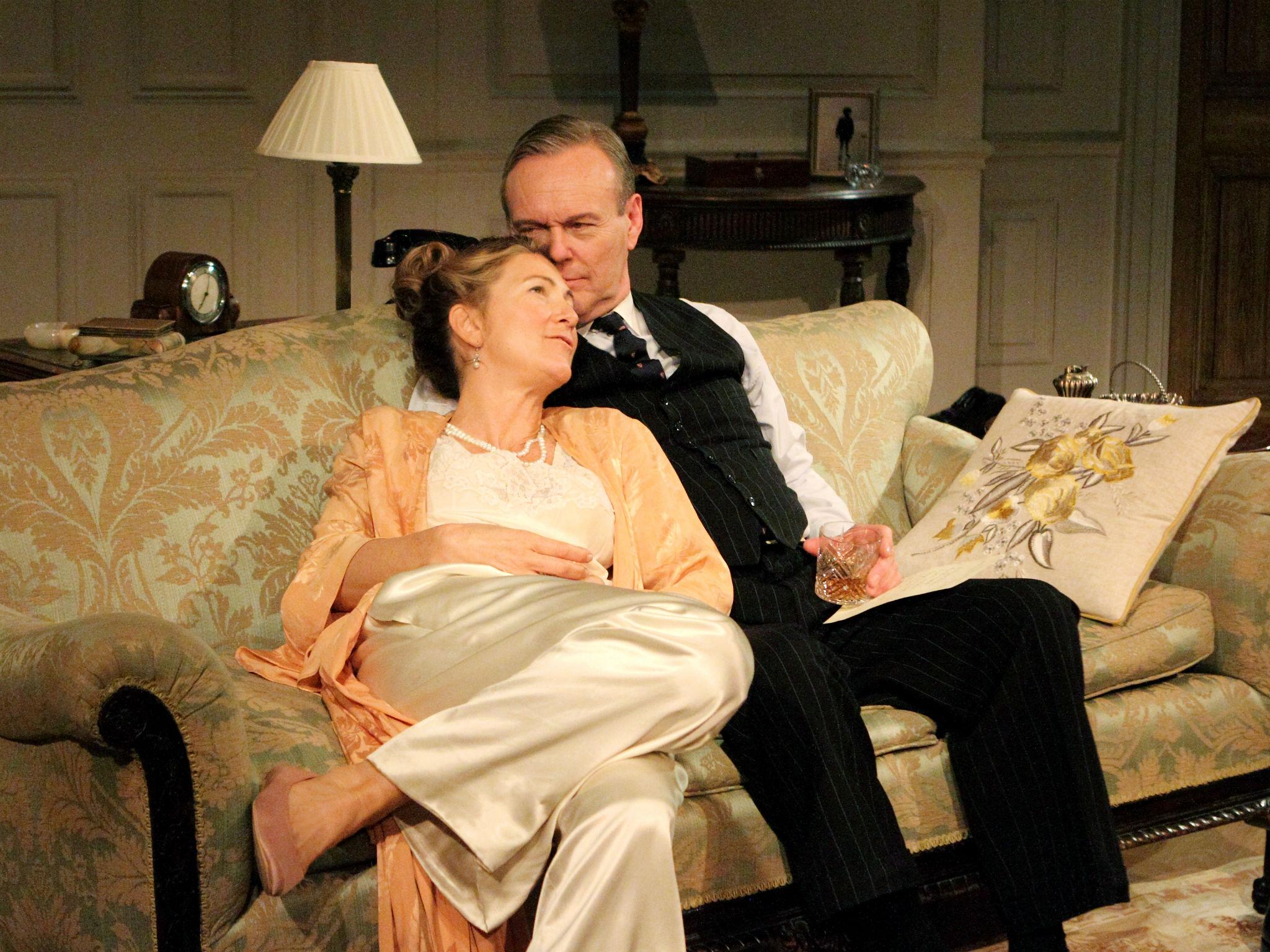Love in Idleness, Menier Chocolate Factory, London, review: It brilliantly synthesises the two versions that exist of a play by Terence Rattigan
Trevor Nunn has combined the texts from Rattigan's comedy ‘Less Than Kind’ with its revised version ‘Love in Idleness’ to create a new production that stars Eve Best and Helen George

Your support helps us to tell the story
From reproductive rights to climate change to Big Tech, The Independent is on the ground when the story is developing. Whether it's investigating the financials of Elon Musk's pro-Trump PAC or producing our latest documentary, 'The A Word', which shines a light on the American women fighting for reproductive rights, we know how important it is to parse out the facts from the messaging.
At such a critical moment in US history, we need reporters on the ground. Your donation allows us to keep sending journalists to speak to both sides of the story.
The Independent is trusted by Americans across the entire political spectrum. And unlike many other quality news outlets, we choose not to lock Americans out of our reporting and analysis with paywalls. We believe quality journalism should be available to everyone, paid for by those who can afford it.
Your support makes all the difference.In 1944 Terence Rattigan wrote a play called Less Than Kind, but soon after was persuaded to revise it, and does so in Love in Idleness. Now Trevor Nunn has brilliantly synthesised the two versions.
The play is set in the last year of the Second World War and Eve Best's subtle, beyond-hilarious portrayal of Olivia, is the widow of a dentist in Barons Court, who has since been taken up and installed in the Westminster home of a war minister, a Canadian industrialist who just so happens to build tanks. So it's up in the world for Olivia, whose social manner appears to have been ready and waiting for her ascent.
Life throws a wobbly when she receives a wire saying that her only child Michael, who was 13 when she last saw him, has landed back in England after four years as an evacuee in Canada. Olivia is genuinely thrilled on one level; she's devoted to the boy. But he has no idea about her new menage – a fact that may severely complicate all those difficult adjustments she will have to make to the youth in that liminal state (“too old to spank and too young to punch on the nose” as the exasperated war minister puts it) who returns to this Elsinore-by-Thames.
We first find Best's Olivia in what for some would-be salonistes is the main activity of the day: head-hunting dinner guests. No one projects better than this actress the sense of a rich, tremulous hinterland that gives evidence of itself in hilarious, erratic lurches from under the gracious scattiness of the social self.
Forever raking his slick of jet black hair, young Edward Bluemel is perfection as the disaffected son playing Hamlet games. Sometimes he reminds you of William Brown trying to wind up his sister Ethel and her latest beau. Other times he reeks of a prim little lefty. Anthony Head is excellent as the Canadian industrialist – sounding like Conrad Black and presumably meant by Rattigan to evoke Beaverbrook. I was left in bits.
I saw Rattigan's original unproduced version of the piece, entitled Less Than Kind, when it first saw the light of day at the Jermyn Street Theatre a few years ago. The dramatist rewrote that draft, as it were, at the behest of the celebrated showbiz couple the Lunts. Rattigan had wanted to bring his Hamlet into real political opposition to the minister, accusing him of feathering his nest as a war-profiteer in a contest where principle (difficult to keep pure when you are only rising 18) is compromised by Oedipal jealousy. The Lunts persuaded Rattigan to lighten things and, now called Love In Idleness, that version received its West End premiere in 1944.
Nunn has many formidable strengths as a man of the theatre, but lightness of touch never struck me as one before now. The way he has nipped and tucked the two pieces into witty angels' hair consistency – arriving at a whole that constitutes a seriously illuminating gloss on the Shakespeare original – is marvellous. Another five-star from Theatreland – what have we done to deserve this?
Join our commenting forum
Join thought-provoking conversations, follow other Independent readers and see their replies
Comments